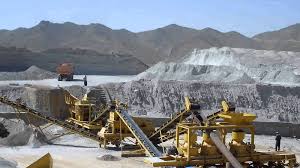Stakeholders in the small-scale mining industry have proposed reforms in the existing licensing regime to help reduce the incentive for people to mine illegally.
The Multi-Stakeholder Dialogue agreed that the permitting process is cumbersome and time-consuming, and discourages artisanal and small-scale miners (ASM) from acquiring licenses required for them to operate.
“The delay in the issuance of license is a major challenge and disincentives the formalization. Imagine an application taking months to be processed. This must be improved if we want to tackle illegal mining,” Hopeson Eli Etsra, Programme Officer with the West Africa Network for Peace (WANEP) said.
The artisanal and small-scale mining industry supports about 12% of the country’s 30.8 million population and accounts for more than 60% of the mining sector labour force. Their operations are largely un-mechanized, indigenous and informal.
Despite having a formalized process for ASM since 1989, more than 85% of small-scale miners in Ghana operate illegally, a situation attributed to the tedious licensing regime and weak regulatory framework.
Effort by the state to formalize ASM operations have not yielded much due to challenges such cost of licensing, centralized issuance and the failure to recognize the conditions of the local miners.
Artisanal and small-scale miners have often complained about the licensing fees charged which hovers around $4,000 on the average, describing it as costly for an activity largely driven by poverty.
Although the administration of ASM has been decentralized, much of the processes have to complete in Accra which increases the licensing cost.
“For instance, a small-scale miner would have to travel to Accra to check the availability of the area he/she intends to mine,” Hopeson noted.
While the meeting admitted the process would have to be improved to encourage formalising ASM operations, it recommended the need for continuous sensitisation of small-scale miners on the licensing process.
The meeting was attended by officials from the Ministry of Lands and Natural Resources, Minerals Commission, Environmental Protection Agency, WANEP, UMaT, Development Partners and non-governmental organizations
It forms part of an ongoing campaign to reduce the use of mercury in the Artisanal and Small-scale Gold Mining (ASGM) sector in Ghana under the Responsive Engagements and Collective Learning Approaches to Inform Mercury Substitution in the ASGM sector.
The dialogue was organized by Fund For Peace and its implementing partners, WANEP and University of Mines and Technology with funding from the US Department of State.
Latest Stories
-
I’m not too old to be ignored, I’ve sacrificed for NPP – Kufuor laments exclusion
1 hour -
Sinner beats Alcaraz in four sets to clinch Wimbledon title
1 hour -
MTN Ghana champions youth mentorship drive at UG with focus on digital skills
1 hour -
Kufuor demands respect and inclusion; laments marginalisation by NPP
1 hour -
Black Queens outstanding allowances has been paid – Ghana’s Ambassador to Morocco
2 hours -
Mobik Energy CEO raises alarm over Tarkwa’s disappearing rivers and environmental neglect
3 hours -
Former Nigerian President Muhammadu Buhari dies in London
3 hours -
Hard work, not betting, will secure your future -Mobik Energy CEO advises Tarkwa Youth
3 hours -
GIA boss debunks claim payment misconceptions as ‘Street Insurance Campaign’ educates public
3 hours -
Asempa FM’s Ekosiisen supports renal patients with GHS100K, urges gov’t to absorb full cost of dialysis care
4 hours -
WAFCON 2024: We have ‘good options in attack’ – Bjorkegren backs Queens to improve goalscoring
4 hours -
Vice President convenes strategic stakeholder meeting on Women’s Development Bank
4 hours -
Bawumia visits Hawa Koomson after violent attack during Ablekuma North rerun
4 hours -
Bawumia visits assault victims in Ablekuma North rerun; pledges support
4 hours -
Mahama charges Transport Minister and Attorney-General to resolve unauthorised shipping charges
4 hours

